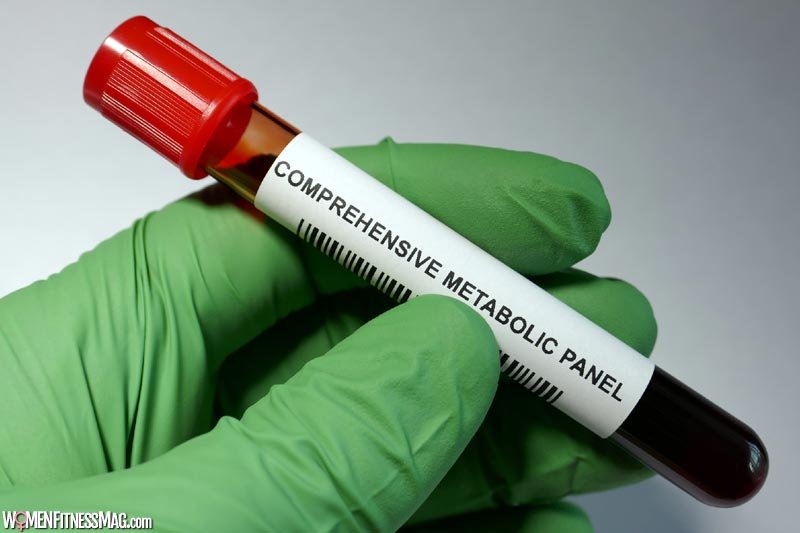What a Comprehensive Metabolic Panel (CMP) Blood Test Can Tell You About Your Health : A CMP (Comprehensive Metabolic Panel) blood test is a standard lab test used to help
diagnose and monitor a wide range of health conditions. It is one of the most comprehensive tests available and provides valuable information about your overall health.
In this article, we will know about cmp blood test in detail.
What is a CMP Blood Test?
A CMP blood test is a series of tests that measure the levels of various substances in your blood. It is used to assess the functioning of your organs, such as your kidneys and liver. The CMP is a reasonably comprehensive test that can provide valuable information about your overall health. It is often used to diagnose and monitor various conditions, such as diabetes, liver disease, and kidney disease.
The CMP is a commonly ordered laboratory test. It is usually performed in a medical laboratory by a trained technician.
What Does a CMP Blood Test Measure?
The CMP blood test measures the levels of several substances in your blood. These include:
- Glucose: Glucose is a type of sugar used as the body’s primary energy source. The CMP measures the glucose level in your blood and can help diagnose diabetes.
- Electrolytes: Electrolytes are minerals, such as sodium and potassium, that help to maintain the balance of fluids in your body. The CMP measures the levels of electrolytes in your body and can help diagnose conditions such as dehydration or electrolyte imbalances.
- Kidney function: The CMP measures the levels of several substances produced by the kidneys. These include creatinine, urea nitrogen, and uric acid. High levels of these substances can indicate kidney problems.
- Liver function: The CMP measures the levels of several substances that are produced by the liver. These include alanine aminotransferase (ALT), aspartate aminotransferase (AST), alkaline phosphatase (ALP), and bilirubin.
- Lipids: The CMP measures the levels of several substances related to cholesterol. These include total cholesterol, high-density lipoprotein (HDL), low-density lipoprotein (LDL), and triglycerides. High levels of these substances can indicate an increased risk of heart disease.
What Are Normal Results of a CMP Blood Test?
The average results of a Comprehensive Metabolic Panel (CMP) blood test will vary
depending on your age, sex, and other factors. Generally, the following are considered to be typical values:
- Glucose: 70 – 99 mg/dL
- Sodium: 135 – 145 mEq/L
- Potassium: 3.5 – 5.0 mEq/L
- Chloride: 98 – 106 mEq/L
- Bicarbonate: 22 – 29 mEq/L
- Creatinine: 0.7 – 1.2 mg/dL
- BUN: 8-25 mg/dL
- Uric Acid: 3.5 – 7.5 mg/dL
- Total Protein: 6.0 – 8.5 g/dL
- Albumin: 3.5 – 5.0 g/dL
- ALT: 0 – 45 units/L
- AST: 0 – 40 units/L
- ALP: 44 – 147 units/L
- Bilirubin: 0.3 – 1.9 mg/dL
- Total Cholesterol: 100-199 mg/dL
- HDL Cholesterol: 40-59 mg/dL
- LDL Cholesterol: 0-99 mg/dL
- Triglycerides: 0-149 mg/dL
How to Prepare a Patient for a CMP Blood Test
If you are scheduled to have a Comprehensive Metabolic Panel (CMP) blood test, it is essential to take the proper steps to prepare for the test. Here are some tips for the patients:
- Talk to your doctor: Before having any blood test, you must consult your doctor about the test and any questions you may have.
- Fast for 8-12 hours: Most CMP tests require you to fast for 8-12 hours before the test. It means you should not eat or drink anything except for water during this time.
- Avoid any medications and supplements: Be sure to tell your doctor about all medication supplements you take. Some of these may affect the results of the test.
- Stay hydrated: One of the most important things is to stay hydrated before and after the test, as it helps to flush toxins out of your system.
When is a CMP Blood Test Recommended?
A CMP blood test is usually recommended when your doctor suspects you might have any medical condition affecting your organs. It is often used to diagnose and monitor conditions such as diabetes, liver disease, and kidney disease. It is also beneficial to monitor the effectiveness of treatments for these conditions.
Your doctor may also recommend a CMP if you have unexplained symptoms such as fatigue, nausea, or weight loss. The CMP can provide valuable information that can help your doctor make a diagnosis or determine the cause of your symptoms.
Cost of a CMP Blood Test
The cost of a CMP blood test will vary depending on where it is performed and what laboratory is used. In most cases, the test cost will range from about $50 to $200. Most insurance plans will cover some or all of the cost of the test. It is advisable to check with your insurance provider to see what is covered.
Conclusion
A CMP blood test is a standard lab test that provides valuable information about your overall health. It is used to diagnose and monitor various conditions, such as diabetes, liver disease, and kidney disease. It is of utmost importance to discuss the results with your doctor.
What a Comprehensive Metabolic Panel (CMP) Blood Test Can Tell You About Your Health
What a Comprehensive Metabolic Panel (CMP) Blood Test Can Tell You About Your Health
what tests are in a comprehensive metabolic panel, cmp blood test results explained, can a metabolic panel detect cancer, cmp normal values, comprehensive metabolic panel abnormal, normal cmp values for adults, cmp blood test fasting, comprehensive metabolic panel results,




